Gosnell: The Trial of America's Biggest Serial Killer
 for mature thematic content including disturbing images and descriptions.
for mature thematic content including disturbing images and descriptions.
Reviewed by: Jim O'Neill
CONTRIBUTOR
| Moral Rating: | Good |
| Moviemaking Quality: |
|
| Primary Audience: | Adults Young-Adults |
| Genre: | History Crime Drama |
| Length: | 1 hr. 33 min. |
| Year of Release: | 2018 |
| USA Release: |
October 12, 2018 (wide—673 theaters) DVD: February 5, 2019 |
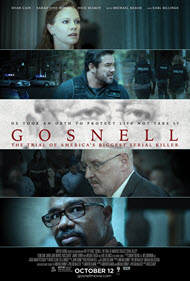

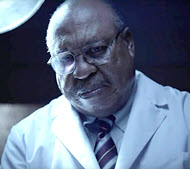
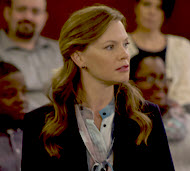
About the fall of mankind into a depraved mind and wicked acts
Murder in the Bible
THE FEAR OF THE LORD— What is it? Why is it important? Answer
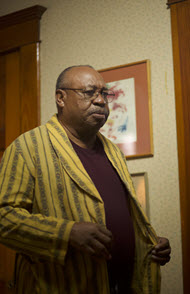


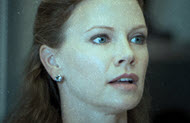
| Featuring |
|---|
|
Dean Cain … Detective James Wood Sarah Jane Morris … Alexis “Lexy” McGuire Janine Turner … Dr. North Nick Searcy … Mike Cohan Michael Beach … DA Dan Molinari Cyrina Fiallo … Molly Mullaney Earl Billings … Kermit Gosnell Grace Montie … Nancy Childs JR Hatchett … Tactical Officer Bethany Carol … Leesa Neidel … Joan Wood Damon Carney … Ed McGuire Lauren Armour … Keshawna Darryl Cox … Dr. Ray Morris Alfonzo Rachel … Detective Stark See all » |
| Director |
|
Nick Searcy |
| Producer |
|
Hat Tip Films Phelim McAleer See all » |
| Distributor |
| GVN Releasing |
Kermit Gosnell, a once well respected and often honored physician, told an interviewer from the Philadelphia Inquirer: “As a physician, I am concerned about the sanctity of life. It is for this precise reason that I provide abortions for women who want and need them.”
Dr. Gosnell’s patients tended to be poor, and often desperate. At his Women’s Medical Society Clinic in West Philadelphia, he performed pregnancy terminations on patients who were turned away from other abortion providers because they were too young (several were 15 years old) or because their pregnancies had gone beyond six months (after 24 weeks, abortion is illegal in Pennsylvania). Dr. Gosnell accepted those patients, many of whose pregnancies had advanced well beyond the legal limit.
Dr. Gosnell’s abortion technique consisted of administering a labor-inducing drug to a patient and then having her sit on a toilet. When the fetus, or in many cases an actual baby who showed signs of life, emerged from the birth canal and fell into the water, the baby was removed. The removal was done quickly so as not to obstruct the toilet’s plumbing. If the procedure resulted in a baby being born alive, the doctor and his staff would turn the child over, make an incision between the newborn’s skull and spine, insert a pair of scissors, and snip the spinal cord. The infant’s corpse was then stored in the clinic’s refrigerator or freezer.
It is estimated that Gosnell performed or directed these post-abortion executions one hundred or more times.
In 2009 a woman (a 40 year old, 95 pound refugee from Bhutan) died in the clinic while undergoing a second trimester abortion. Her death apparently resulted from an anesthetic overdose that was administered by one of Dr. Gosnell’s unlicensed assistants. The staff called emergency services well after the patient began showing signs of distress. When the ambulance personnel arrived, they had difficulty reaching the dying mother. They struggled bringing the emergency stretcher up a narrow stairwell (there was no elevator) and maneuvering hallways that were crowded with supply boxes, trash bags and cat litter boxes. The litter boxes overflowed onto the hallway carpets.
For years, complaints were made to the Pennsylvania Department of Health and the Pennsylvania Governor’s office about conditions at the Women’s Medical Society Clinic, but those reports were ignored. Both offices resisted taking action because they believed that restricting Dr. Gosnell’s practice was akin to limiting a woman’s right to an abortion. In 2010, the Philadelphia Police and the FBI raided the clinic, not to investigate complaints about unsafe and unlawful medical practices, but to assess reports about illegal drug prescribing.
On entering the clinic, the investigators discovered bags overflowing with medical waste, cats (some flea-infested) roaming the halls, and sea turtles (illegal to be kept as pets) bobbing in an aquarium full of murky water. In the operating room, they found dirty and rusty instruments strewn atop dust-covered surfaces and on the unswept floor. Stretchers, operating tables and monitoring equipment were in a state of disrepair.
The investigators described the setting as resembling “a bad gas station restroom.”
In the waiting area, they came upon patients who were reclining on blood stained chairs. The patients had been given sedatives and were covered in blankets that were also stained with blood.
In the clinic refrigerator and freezer, the police found containers, some of which held fully formed fetuses and others which held fetal body parts. Dr. Gosnell had a large collection of baby’s feet that he kept in small jars, as well as in cat food containers. The 19-week-old fetus of the mother who died from the anesthetic overdose was stored in the freezer, as were several other babies who were determined to be old enough to have been viable outside their mothers’ wombs.
Dr. Gosnell’s story is one that has been mostly ignored by the mainstream press. The trial, in which Dr. Gosnell and his associates were convicted of three counts of first-degree murder and one count of involuntary manslaughter in the death of the woman undergoing an abortion at the clinic, had scant coverage.
It is therefore remarkable that “Gosnell: The Trial of America’s Biggest Serial Killer,” based on the book by Ann McElhinney and Phelim McAleer, found a path to the screen. The production team of McElhinney, McAleer, Magdalena Segeida and John Sullivan, with the help of a Crowdfunding Campaign that raised $2.3 million from online donors, has accomplished something seemingly insurmountable. They took a subject that most of society shunned, and against the odds, made a stirring and engrossing movie. They bravely beckon us to look at a real-life nightmare that takes place in a world where evil is wide-awake, while all else lies in a state of comfortable slumber.
“my soul is sorrowful even to death… remain here and keep watch with me.”
… when he returned to his disciples, he found them asleep… (Matthew 26:36-40)
The film, nimbly directed by Nick Searcy, pays homage to the criminal investigation genre, but does not let legal procedural minutiae get in the way of a gripping story about good versus evil and justice versus injustice. The verbal jousting about choice, reproductive rights, race, and even endangered species blends comic irony with gnawing suspense. One hopes that justice will prove itself blind, but in a case in which every word and thought is suspect, the lady with the scales seems more likely to blink.
Dean Cain plays Detective James Wood. He comes across as naive early on (“I’ve never been in an abortion clinic before”), but his “innocent as a dove” persona soon gives way to a “wise as a serpent” pursuer. I was expecting a TV level performance from Cain, but he proves himself a formidable, and likable, screen actor. The scruffy beard, the extra weight and the rumpled wardrobe suit him well. His character is a tenacious law enforcer, one who never lets go, but he is also a human one.
Lexi McGuire, the assistant district attorney, played by Sarah Jane Morris, reluctantly agrees to prosecute the Gosnell case. She is the mother of 5 children, and she considers herself pro-choice, but she knows that what occurred in Gosnell’s clinic had nothing to do with a woman’s right to choose. Morris eschews the hard edged, crusading tone that most actresses, and actors employ when they play courtroom scenes. Instead, she builds support for her character and her character’s cause by withholding emotion until it has the most impact. She is well matched by Gosnell’s defense attorney (the film’s director, Nick Searcy); she lets him trump her in the verbal clashes, but she rebounds from his jabs, and with quiet persistence, builds a case that puts the focus not on her, but on the victims of the doctor’s crimes.
Her DA boss warns Lexi: “You’ll be the prosecutor who went after abortion rights, and you’ll be a racist to boot.” He also tells her to brace herself for a bevy of press reporters who are likely to hound her outside the courthouse and inside the courtroom. She does, but when she arrives on the day of the trial, the press section inside the courtroom is empty. Not a single newspaper reporter shows up to cover the case.
Earl Billings plays Gosnell as a man of folksy charm and calm detachment. His welcoming smile conceals a core of minuscule compassion and intense self-regard. He tells investigators that he treats each patient “as if she were my own daughter,” but witness accounts reveal a man who slaps patients and tells one “to stop acting like a baby.” The mask he wears only comes off when he is behind the door of his operating room, or when fate turns against him, something he believes will never happen. Billings understands that Gosnell, himself, is an actor. The more the doctor abandons his own humanity, the more adept he becomes at pretending to be human. He delicately dines on Chinese takeout, even though his hands are still bloody from an abortion he just finished. And while the police search his garbage-strewn and maggot-infested house, he plays a piano with velvet-like smoothness.
The movie’s best scene takes place in the courtroom when Dr. Gosnell’s defense attorney questions a witness, another abortionist (a riveting Janine Turner in too small a part), about how she performs a legal second trimester abortion. She cooly describes how she injects the fetal heart with potassium, empties the contents of the skull, and breaks off bits of the fetus piece by piece in order to evacuate them. After the first trimester, the baby is too big to remove whole. The lawyer asks her what she would do if one of her abortions resulted in an unexpected live birth. She answers that she would administer “comfort care,” until the baby “passed.”
“You mean you would let it die,” states the attorney.
Her answer: “Yes.”
In the topsy-turvy world of abortion debate, you have a lawyer comparing an abortionist on trial for multiple murders of infants with another abortionist who has performed 30,000 late term abortions according to the “standards of care” in her community, and he argues that there is little difference between the two. In making what he thinks is a pro-choice argument, he actually makes a strong case for why abortion is, in its essence, evil.
As a physician, I took part in abortions for several years before I “came to my senses” and acknowledged that I had “sinned against heaven and against (God).” That experience taught me that sin has a cumulative effect, certainly on me.
“I do what I do not want to do. It is no longer I who do it, but it is the sin living in me that does it.” —Romans 7:21
For years I went about my work, refusing to see what I was doing. I was asleep to the corruption that arose from my own heart.
“for out of the heart come evil ideas…” —Matthew 15:18
I regret my actions, and I pray for forgiveness. I know that had I continued on my prior path in that “distant country” where many prodigal sons go, I would be no different than Dr. Gosnell. I might use cleaner instruments, keep cats out of the operating room, and pay closer attention to what the state regulatory agencies told me to do, but all things considered, I’d be lying if I said I was different than he.
“Gosnell, The Trial of America’s Biggest Serial Killer” deserves our attention, because it bravely faces an issue that has been one-sided for too long. One of the characters in the film says nervously: “It’s abortion; nobody wants to touch that.” I salute the filmmakers who touched the subject and allowed their audience to see the abortion industry in a way that the public rarely does. Another character, a blogger who helps bring the Gosnell story to light and is played with steely vigor by Cyrina Fiallo, reveals that there may be a small flicker of hope even for the media: “When my beliefs come up against the truth, I’m going to tell the truth.”
It takes insight and courage to make such a statement, as it does to make a film that takes on a topic considered by so many to be “settled law.” This landmark movie unsettles that notion, and will hopefully wake up a public made weary, and sleepy, by an industry that too often tells us to look the other way.
- Violence: Moderate
- Vulgar/Crude language: Moderate
- Profane language: Minor
- Nudity: None
- Sex: None
- Occult: None
See list of Relevant Issues—questions-and-answers.


Liberals Shun “Gosnell” Film
by Bill Donohue
Kermit Gosnell is serving three consecutive life sentences for murdering three infants born alive during an abortion, and for committing involuntary manslaughter; in the latter instance, a woman died during a botched abortion. Phelim McAleer and Ann McIhenny are independent filmmakers who wrote a book on Gosnell, and then turned their work into a movie, “Gosnell: The Trial of American’s Biggest Serial Killer.”
The movie did well over the weekend, finishing first among indie films, and 10th overall. But it was shunned by liberals.
Texas, Georgia, North Carolina, and Tennessee are states that are pro-life friendly; not so would be New York, New Jersey, and Massachusetts. It is therefore not surprising to learn that “Gosnell” played in many more theaters in pro-life states than in pro-abortion states.
Texas has a population of 28.7 million and New York is close to 20 million. It played in 15 theaters in New York State (one in Manhattan), while Texas hosted the movie in 80 theaters.
Georgia and North Carolina are a little bigger than New Jersey, but in terms of theaters that showed the film, there was a big difference: it opened in 38 theaters in Georgia, 25 in North Carolina, and just 9 in New Jersey.
Tennessee and Massachusetts are roughly the same size, but “Gosnell” only played in 7 theaters in Massachusetts compared to 19 in Tennessee.
With the exception of the Los Angeles Times, no major newspaper reviewed the movie. The New York Times and the Washington Post review virtually every new movie, but found no interest in writing about “Gosnell.”
The reviews curiously noted how liberals would not appreciate this film. The Los Angeles Times said the movie “never loses sight of the choir to which it is plainly preaching.” Forbes called the movie “A Feature-Length “Law and Order” for Conservative Christians.” NBCNews.com called it a “conservative-backed dramatization of the story of Dr. Kermit Gosnell.
Why are liberals not interested in a movie about a man who exploits—even kills—women? Why are secular liberals not as interested in this movie as conservative Christians are? If this is a “conservative-backed dramatization,” what would a “liberal-backed” one look like? After all, a dramatization about a serial killer shouldn’t turn on ideology.
Of course, Gosnell was not a Las Vegas-type shooter, nor was he a Columbine High School one: He was an abortionist, a man who made his living by going beyond the call of duty, killing babies after birth as well as before. They don’t like that in Manhattan.
It’s not as though liberals abhor violence—many applaud Antifa. It’s violence that is integral to a cause they champion that they prefer to ignore.
The movie is thoughtfully presented with fine acting and a good pace. Although the subject matter is grim, the film is tastefully done with very limited gore shown. The horror of Dr. Gosnell’s criminal history becomes evident through the investigation and testimonies given at the trial. The full weight of his crimes is shown mainly through the reactions of those involved in the legal case and investigation. This makes a very effective and strong statement for the heart wrenching subject matter.
I think the fact that the press at first refused to cover the trial and the movie is quickly being removed from theaters is significant. It’s important to face the reality that crimes like this happen in our country. This film gives a window into what it is like for a disadvantaged woman to visit a poorly run clinic. There are so many tragic consequences of abortion, most of all to the truly innocent members of our society… babies with no voice. It is my hope that a great many people will see this movie.
Moral rating: Better than Average / Moviemaking quality: 4½
“Gosnell” is a powerful movie with great acting and overall is very well made. It is not a kid’s movie, as some brief images and several descriptions of abortion could definitely scare sensitive children. The only content of any concern would be a few s-words and a few other mild words, but these are all very brief and there is not much language at all once the movie gets going. There is also a short wedding scene in which the bride’s dress has a low cut neck. These are the only things I didn’t care for in the film, and they were very easy to overlook and enjoy the movie.
This movie has great potential to change many hearts and minds, and save lives. So please, go see this film and tell others about it! It’s an excellent drama telling a story that the American people need to hear!
Moral rating: Good / Moviemaking quality: 4½
PLEASE share your observations and insights to be posted here.
“The universities of the world are teeming with young people just like that young person I once was,” McElhinney continued. “This story was not orchestrated by the pro-life movement. This was a trial: a murder trial.”…
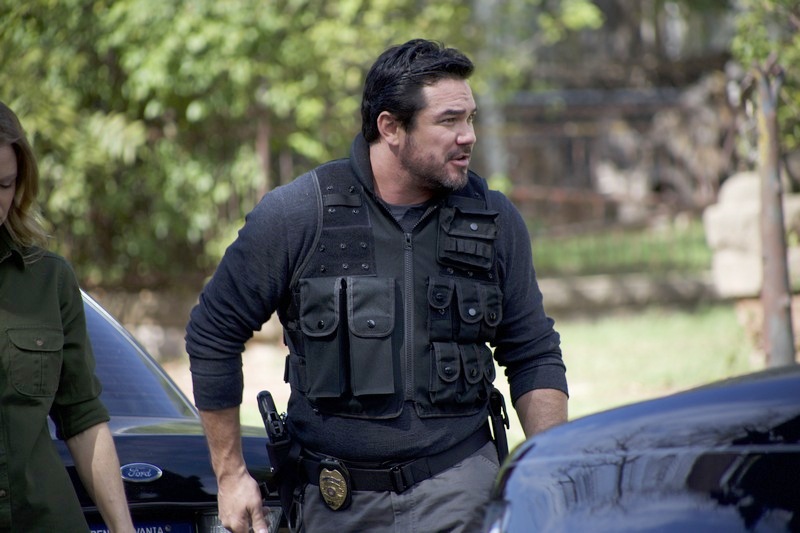

A beating heart is indicative of life, no matter where the child is positionally located!
This film is very well done, very well acted, and moving to the core. Without even using so much as God’s name, it exposes abortion for what it is—the murder of innocents. I think it could lay a foundation to win over the hearts of those who would otherwise automatically shut down at the mere suggestion of a “religious” conversation on the issue, and perhaps win some to Christ and a biblical viewpoint (in the same way that Ben Stein’s “Expelled” was a great launching point for a creation vs. Evolution discussion). Well done!
(As a side note, I generally cringe at any foul language used in a movie. I definitely noticed the language here, but it was not enough to distract me from the appreciation of this film’s content.)
My Ratings: Moral rating: Better than Average / Moviemaking quality: 4½